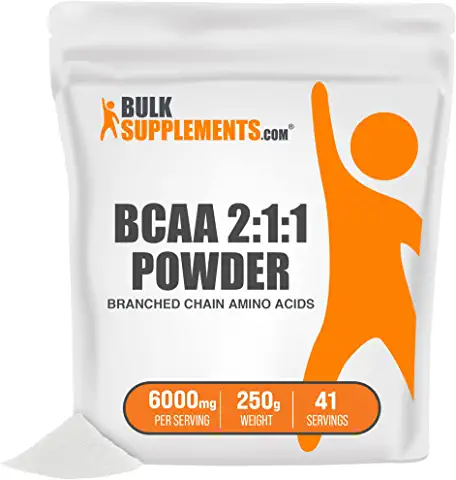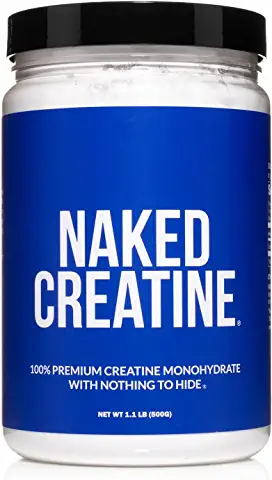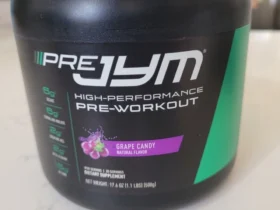You set the stage for your entire day in the mornings. Here are the absolute best supplements to add to your morning routine for a great start to the day.

Some small changes to our daily routines can have enormous consequences for our health, performance, and physique. And while you should always look to nail the basics first – such as good food and sleep habits – morning supplements can help put you on the right path to your goals whether that’s increased energy, decreased physical and mental stress, immune system enhancements, or just general health benefits.
Even if you’re not a morning person, vitamins and herbs can play a large part of a healthy lifestyle. And with so many options and your literal health at stake, it’s no wonder that the supplement industry takes in over $151 billion every year.
However, not all are created equally. With a market this size and with little regulation, it’s essential to look for the right products for that morning boost. Here are some supplements that can actually add benefit to your morning routine!
1. Protein
Having a breakfast shake can help keep protein flowing through your body for necessary repairs. And if you’re sleeping well, hopefully you’re coming off 9 to 16-hour fast that you need to break. It will take a little while for any new protein to absorb and for your body to process it. This is nothing to worry about, but you do want to get some protein in as soon as you can!

However, not all protein supplements are created equally. Many are filled with unwanted additives, lack quality testing, or are unethically sourced. Sticking with a well-known manufacturer with quality testing standards should keep you safe.
To complicate matters, there’s different types of proteins and each has a different affect in the body. As a general rule, stick with whey proteins as it is the fastest absorbing and offers the highest absorption rate of your basic options. If you can’t handle dairy, you can try an egg protein powder or vegan options like pea protein.
Lastly, if you’re worried about GMO ingredients, look for a GMO-free organic protein powder. Personally, I’ve had good experiences with Orgain protein but there are certainly other options out there.
Choosing a Quality Protein Supplement
Protein is different from other supplements, as it requires the highest quantity. This means that proportionate additives will be much more plentiful than you’d find in a capsule supplement. One or two large scoops of protein powder can carry a lot of unnecessary garbage.

To determine the quality of the protein powder, look at the nutrition label. Divide the calories by the grams of protein. The closer that quotient is to 4, the fewer fillers and additives there likely are.
Protein is always 4 calories per gram. Therefore, if your scoop is 160 calories and only 20 grams of protein, then only half of the calories are coming from protein. The rest could be sugar, fat, or unwanted additives.
To contrast two of the most popular whey protein supplements, Optimum Nutrition has 130 calories and 24 grams per scoop. That means that 42 calories come from other ingredients.
Conversely, BSN’s Syntha6, which is one of the most popular brands on the market, has 200 calories and 22 grams of protein. This leaves 116 calories (more than half) unaccounted for.
If you want a high-quality protein powder, choose one with high nutritional value and a good flavor. Check out our review of Optimum Nutrition flavors to learn more.
2. Pre-workout Supplement
Pre-workout supplements are quite controversial, but this is only due to some of the non reputable products that circulate on the market. Choosing a real pre-workout supplement with natural ingredients and third-party testing is safe.
A couple quick notes before going any further: if you don’t workout in the morning, then save this until later in the day before you actually workout. If you do that, though, make sure it’s not too late in the day as you don’t want it to affect your sleep.

Anyways, the reason pre-workout supplements are beneficial is that they help you perform at your highest levels during your workout. One extra rep may not sound like much, but one extra rep over time can make an enormous difference in your gains.
What to look for (and avoid)

Now, many of these supplements are filled with items you may want to avoid – artificial sweeteners, artificial colors, tons of caffeine, and so on. Always read the ingredients and look for the fewest additives and fillers possible!
The main stimulant you’ll find in a pre-workout is caffeine. Caffeine has been widely studied to enhance workouts, and 90% of adults in the world use caffeine daily. Because of the known effects of caffeine – such as increased energy levels – you can absolutely use something like coffee to boost energy.
If you’re worried about ingredients or being overly stimulated, look for natural pre-workouts and/or stimulant-free supplements, which are those without caffeine or other stimulants. Either way, a quality pre-workout powder can certainly help improve your performance.
If you’re looking to find one, we’ve tried and reviewed numerous pre-workouts, such as ON’s Amino Energy and will continue to give to do so.
3. Amino Acids
If you train with high volume on a consistent basis, recovery is essential for performing your best. If you want to work out 4-5 times a week, you need to make each workout count. If your muscles are sore and you can’t perform at your highest level, then you won’t see results as fast.
While there is some debate on which amino acids are best – branch chain amino acids (BCAAs) or essential amino acids (EAAs) – either help build muscle or prevent muscle loss. Taking these in the morning, especially a few hours before your workout, can help your muscles recover from your training. Also, most of these come with electrolytes, which is perfect for fasting.
Incorporating BCAAs into your supplement routine can certainly help you get to the gym sooner after each workout. They also come in some delicious flavors for powders, and they typically won’t break a fast, as they have zero calories! If you like to work out while fasted in the morning, this is a great option to help give you a boost.
As an aside, if you’re already taking additional morning protein supplementation, you probably don’t need additional BCAAs. Additionally, some pre-workouts (like the previously mentioned Amino Energy) also include BCAAs. While taking even more BCAAs won’t hurt, over supplementation is just a waste of your hard-earned money.
4. Creatine
Creatine is one of the only legal workout supplements that are scientifically proven to improve your performance in the gym. Study after study indicates that those who take creatine supplements have between 10% and 15% strength increases compared to those who don’t.
All muscles use this natural compound for strength and composition, not just athletes, and not just humans. Creatine is found naturally in many types of meat. Creatine is especially helpful if you follow a vegetarian or vegan diet, as it’s hard to obtain naturally.
To get the quickest impact, you should start with creatine loading. Generally, this means taking an increased dose initially (for a week or two) to saturate the muscles with creatine. While safe, for some people that may cause some temporary intestinal distress. If so, just cut back to the normal dose (5 gram day, typically) and forego the loading phase.
There are several myths about creatine worth debunking. First, it’s nothing like steroids, not even in the slightest. It is a completely different, natural compound used in everybody’s muscular system.
Second, it does not just “suck water into your muscles.” This is not at all the function of creatine, but it can lead to water retention in the short term, so don’t be surprised if the scale shows an inflated weight. Just keep drinking water and it will go away!
Finally, creatine is perfectly safe to use and perfectly legal in every sport. There’s no harm and no risk to taking it for the average healthy person, barring any pre-existing medical conditions.
Choosing the Right Creatine
Creatine monohydrate is by far the most popular type, and for good reason. It is the most effective for increasing strength and muscle growth, and it has the most testing and research behind it by a large margin.
Always remember to choose supplements with the fewest fillers and additives. We highly recommend starting with a simple powder instead of capsules so you can control the dosage during the loading phase.
Look for just a simple creatine monohydrate powder with no other ingredients.
5. Multivitamin
Ideally, you should get your vitamins through whole foods first. However, it is difficult if you’re on a rigid diet of proteins and complex carbohydrates and vitamin deficiency can still occur. While trying to get more vegetables into your diet, a multivitamin can help fill the gaps.

Conversely, if you aren’t eating enough vegetables (be honest), then a multivitamin is the way to go. It’s not a replacement, but it can help ensure that your body is getting the help it needs to make those gains (or cuts).
6. Choose What You Need
Okay, this one isn’t a specific recommendation for just one supplement but if you believe you are getting the majority of your micronutrients or suffer from specific ailments, try to fill the gaps with specific vitamins instead.
For example, vegans and vegetarians likely get a wide variety of vitamins and minerals, but vitamin B12 deficiencies are common and can lead to irreversible consequences if left to persist. Selenium, iron, iodine, and calcium may also be difficult on a plant-based diet.

As another example, many of us suffer from chronic stress. If so, consider taking specific vitamins or herbs that have been shown to modulate stress levels such as ashwagandha. In multiple studies, ashwagandha showed significant improvements in mood as well as reducing cortisol and DHEA, both of which are markers for elevated stress.
Lastly, even if you eat well, you should consider a Vitamin D supplement, especially in the winter. Why in the winter? Well, your body (largely) produces Vitamin D based on your exposure to sunlight. And what do most of not get in the winter? Sunlight!
According to Harvard Health, Vitamin D has also shown benefits in preventing colds, increased bone health, and reduced inflammation. For proper absorption, just be sure to take it with food as Vitamin D is fat-soluble.
7. Fish Oil

Fish oil is jam-packed with omega-3 fatty acids, which are perfect for both joint and neurological health. Your brain needs omega-3s for fuel, and your joints need them for protection. When working out hard and burning a lot of calories, fish oil can help bridge the gap you need!
An alternative for vegans would be flaxseed oil, but we don’t recommend cooking with it. The oxidation process can make it unhealthy, but it’s perfectly fine to have in a capsule or over a salad!
Add These to Your Morning Routine
You don’t need a huge array of workout supplements in your morning routine to get big or to lose weight. In fact, you should pick and choose the ones based on whatever it is that you want to improve such as mental clarity, energy levels, or reduced physical and mental fatigue.
While it may not turn you into a morning person, adding a healthy mix of supplementation to your diet (as needed) can help make a major difference in your performance and results.

Stay up to date with our latest healthy living tips, and check out our supplement reviews to help answer any questions!










